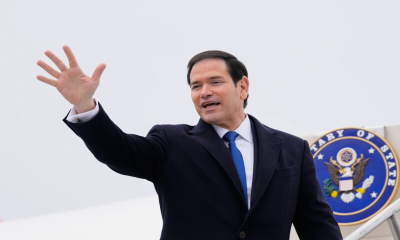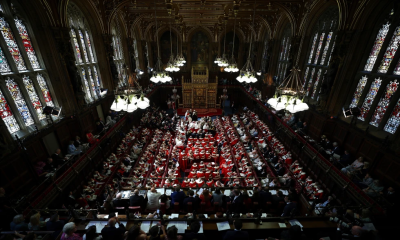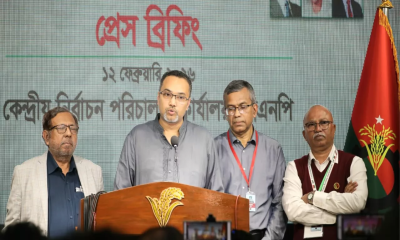Prime Minister Sheikh Hasina on Wednesday called for collective efforts of the seven Bay of Bengal countries at tapping the full potentials of the region for the benefits of their people.
“We need to find common strategies to rebuild a sustainable and resilient Bay of Bengal region by tapping the full potentials of the region,” she said while addressing the 5th BIMSTEC Summit that opened in Sri Lankan capital Colombo.
Joining the summit virtually from her official residence Ganobhaban the prime minister said that the summit meeting gives an opportunity to expedite the collective efforts and find out common solutions to the multiple challenges.
BIMSTEC or Bay of Bengal Initiative for Multi-Sectoral Technical and Economic Cooperation comprises Bangladesh, Bhutan, India, Myanmar, Nepal, Sri Lanka and Thailand bringing together 1.54 billion people of the resource-rich region.
Sri Lanka is hosting the 5th BIMSTEC Summit in hybrid mode with the theme “BIMSTEC-Towards a Resilient Region, Prosperous Economies and Healthy Peoples.” Sri Lankan President Gotabaya Rajapaksa formally inaugurated it.
The Bangladesh leader said that the huge population of the region is “not only a challenge but also an opportunity.”
Hasina said the forum is an appropriate leverage for mutual benefits to address post COVID-19 challenges as well as the impacts of political crisis in the West.
She said that the Summit is taking place at a time when the world is going through turmoil due to Russia-Ukraine war and its aftermath.
She said the war has pushed the world towards a “fresh debacle impacting fuel and food supplies and soaring prices of essentials” just when it started recovering from the devastating pandemic.
The prime minister said that the livelihoods of people, especially of countries like BIMSTEC, have started becoming tougher with the price hike of essentials.
She said that Bangladesh has been committed to regional cooperation since its Independence.
In this connection, she said that the Father of the Nation Bangabandhu Sheikh Mujibur Rahman first dreamt of regional cooperation through working with neighbours in South Asia.
She mentioned that Bangladesh’s joining of BIMSTEC forum as a founding member in 1997 was an extension of the legacy of Bangabandhu’s dream.
The prime minister urged the BIMSTEC leaders to pledge for
a) Immediate implementation and operationalization of all agreed decisions like BIMSTEC FTA, BIMSTEC Centers and entities like Disaster Management Center, Energy Center, Cultural Commission etc.,
Connectivity Projects, Energy Grid Connectivity with a view to bringing immediate tangible benefits for our peoples.
b) Completion of the process of all other legal instruments and policy documents that are already underway but not yet finalized by pushing the organization’s momentum on a fast track.
c) Empowering the organization to engage in creative and innovative process by expanding its partnership and outreach with relevant entities outside of BIMSTEC with a view to addressing emerging threats and seizing new opportunities.
The PM took the opportunity to explain how Bangladesh underwent a phenomenal transformation in socio-economic front during the last one decade while upholding democratic polity.
She mentioned that the rate of poverty came down from 41.5 per cent to 20.5 per cent and extreme poverty from 25.1 per cent to 10.5 per cent during this period.
She also said that per capita income more than tripled to USD 2,591. The infant mortality rate fell to 23.67 per 1,000; maternal mortality rate to 173 per 100 thousand live births and life expectancy rose to 73 years.
The prime minister said that Bangladesh is now one of the top five fastest growing economies in the world.
“Even during the COVID-19 pandemic, we maintained a 6.3 per cent growth last year. Just last week, we brought 100 per cent population under electricity coverage. The UNGA has granted us the final approval of graduation from the status of LDCs.”
Hasina said that Bangladesh is the lead country for Trade and Investment within BIMSTEC and urged upon the leaders to extend support to implement BIMSTEC Framework Agreement on Free Trade Area (FTA) signed in 2004 for operation of tariff free trade among the member states.
Conclusion of some essential constituent legal instruments of the FTA is required. Some progresses have been made in finalising the Agreement on Trade in Goods and Rules of Origin, by the relevant sectoral working group led by Bangladesh. I seek support from the distinguished leaders to expedite the process, she added.
She also said that Multimodal Transport Connectivity is another vital component of BIMSTEC Cooperation and the government is committed to linking Bangladesh with the countries in the Bay of Bengal region.
She welcomed the adoption of the BIMSTEC Transport Connectivity Master Plan formulated by the Member States with technical assistance of the Asian Development Bank.
“I strongly believe the Master Plan will facilitate regional integration in the Bay of Bengal Region.”
“Cooperation in Energy sector is a very vital component for our development and survival. We have to take new and collective initiatives for innovation and renewable energy.”
She reiterated Bangladesh’s commitment to maintain security and stability in the region within the framework of BIMSTEC Cooperation and Security Mechanism.
“We are working and taking part in all activities and events under the BIMSTEC Convention on Counter Terrorism and Convectional Crimes (CTTC),” she said.
She also urged the leaders to reiterate the collective commitments at the summit to revitalize the organization with a view to making the process fully functional by activating all 14 sectors of cooperation.
Foreign Minister Dr AK Abdul Momen joined the summit in person, while Foreign Secretary Masud Bin Momen joined virtually.
Secretary (East) Mashfee Binte Shams, Additional Foreign Secretary (SAARC and BIMSTEC) Md. Shamsul Haque, Rector, Foreign Service Academy Asad Alam Siam, High Commissioner of Bangladesh to Sri Lanka Tareq Md Ariful Islam, Director (SAARC and BIMSTEC) Md. Aminul Islam Khan, Director (FMO) Md. Emdadul Islam Chowdhury, among others, joined in person as Bangladesh delegation members.






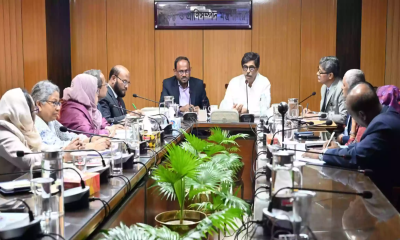
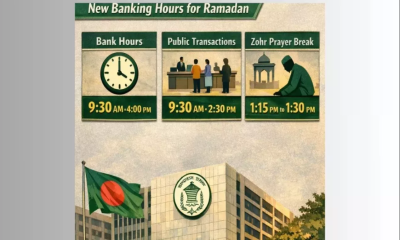
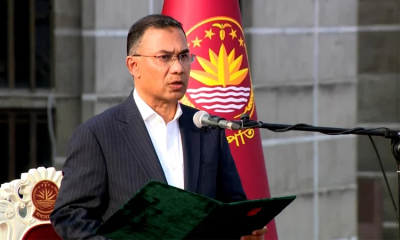

-20260219054530.webp)

